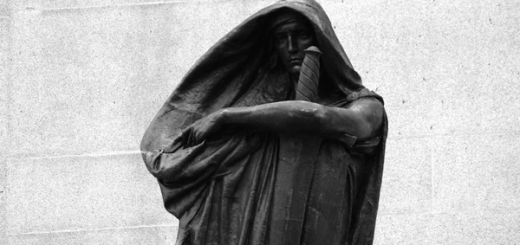Pardoned Offences and Moral Character in Montréal (City) v Quebec
Last week the Supreme Court of Canada handed down a split decision in Montréal (City) v Quebec (Commission des droits de la personne et des droits de la jeunesse), [2008] 2 SCR 698 [Montréal v Quebec]. In this post, I will consider the majority, authored by Justice Deschamps, which clarifies the implications of a pardon to a criminal offence on the assessment of the “moral character” of a prospective government employee.
Facts and Procedural History
In November 1995, the Service de police de la Communauté urbaine de Montréal (“SPCUM”) rejected S.N.’s application for employment as a police officer, citing concerns that she was not of “good moral character” (a hiring standard enumerated in the Police Act, CQLR c P-13.1). SPCUM’s determination in this regard was based on the fact that in 1990, S.N. had been caught shoplifting, and had subsequently pleaded guilty to theft in summary conviction proceedings. Although she plead guilty, S.N. was conditionally discharged pursuant to s. 730 (then 736) of the Criminal Code, RSC 1985, c C-46, which confers on courts the ability to issue a conditional or absolute discharge in limited situations.
Having been conditionally discharged three years following her conviction, S.N. was given an automatic pardon under s. 6.1 of the Criminal Records Act, RSC 1985, c C-47. As such, she challenged SPCUM’s decision by appealing to the Commission des Droits de la Personne et des Droits de la Jeunesse (the “Commission”). She alleged that SPCUM had acted contrary to s. 18.2 of the Quebec Charter of Human Rights and Freedoms, CQLR, c C-12 [Quebec Charter], which reads:
18.2 No one may dismiss, refuse to hire or otherwise penalize a person in his employment owing to the mere fact that he was convicted of a penal or criminal offence, if the offence was in no way connected with the employment or if the person has obtained a pardon for the offence.
The Commission found in favour of S.N., proposing that SPCUM to pay $5,000 in moral damages, and to cease to consider S.N.’s criminal record in applying the “good moral character” criterion. Upon SPCUM’s refusal to comply with the decision, the Commission carried a complaint to the Human Rights Tribunal against SPCUM. The Human Rights Tribunal upheld the $5,000 award for moral damages, but overturned the Commission’s order that SPCUM cease to consider S.N.’s conviction as something that might impeach her “good moral character.”
After passing through the Human Rights Tribunal, the case proceeded to the Quebec Court of Appeal (2006 QCCA 612), which affirmed the tribunal’s decision, finding that SPCUM’s conduct had violated s. 18.2 of the Quebec Charter. In the final leg of its journey, Montréal v Quebec was appealed and ultimately granted leave to the Supreme Court.
At The Supreme Court
Writing for the majority of a divided court, Deschamps J. affirmed the decision of the Quebec Court of Appeal. The majority decision hinged on the interpretation of s. 18.2 of the Quebec Charter. As such, Deschamps J. drew on the Supreme Court decision in Therrien (Re), [2001] 2 SCR 3 [Therrien], which identified four threshold conditions for engaging s. 18.2 of the Quebec Charter:
(1) a dismissal, a refusal to hire or any kind of penalty,
(2) decided on in relation to the person’s employment,
(3) owing to the mere fact that the person was convicted of a penal or criminal offence, and
(4) either the offence must be in no way connected with the employment or the person must have obtained a pardon for the offence.
In the present case, (2), (3) and (4) were all at issue. With respect to the second requirement, SPCUM argued that the position of a police officer was analogous to that of a judge, which pursuant to Therrien did not qualify as employment for the purposes of s. 18.2 of the Quebec Charter. However Deschamps J. emphatically rejected the analogy between police officers and judges:
Police officers do not enjoy the constitutional protection judges are granted to ensure that they are not subject to any bureaucratic higher authority. The police officer’s role is of course essential to any organized society, since it ensures order and security. Police officers are an integral part of the judicial system established to punish delinquent behaviour and prevent wrongdoing. However, this does not mean that they do not hold employment.
With respect to the issue of whether SPCUM’s refusal to hire S.N. owed merely to the fact that she was convicted of an offence, (the third Therrien requirement), Deschamps pointed out that, in addition to being of “good moral character,” s. 2 of the Police Act’s By‑law respecting standards for hiring identifies not having a criminal record as a separate criteria for employment as a police officer. Accordingly, Deschamps J. reasoned that, “if, as the appellant argues, the facts giving rise to a conviction can on their own be used to reject a candidate for not being of good moral character, this would mean that the provisions concerning a criminal record are redundant.”
That said, Deschamps J. also took issue with the respondent’s argument, to the effect that the commission of a criminal offence should cease to have any significance in terms of the assessment of whether a prospective police officer is of “good moral character”:
On the other hand, to accept the respondent’s argument that the facts giving rise to a conviction may not be considered in assessing whether a candidate is of good moral character would mean that a pardon would not only restore the convicted person’s reputation but would also erase the past, which is not the case.
However, Deschamps J. was quick to qualify that although the employer is entitled to “consider the facts that resulted in a finding of guilt in assessing whether a candidate has the qualifications required for a job,…[they] must also consider the fact that the person has been pardoned.” A failure to do so would, in certain respects, negate the effect of a pardon:
A conviction or, in the case of a discharge, a finding of guilt ‘should’ no longer reflect adversely on a person’s character following a pardon. The positive effect of a pardon as it reflects on a person’s character may, however, be countered by adducing evidence of delinquent behaviour or of facts indicating a lack of probity, although this evidence cannot be limited solely to the finding of guilt.
What Deschamps J. seems to be describing here is a rebuttable presumption that if a person is pardoned, then their prior criminal conduct is not an indication of “bad” moral character. “To justify an objection based on moral character,” Deschamps J. explained, “the employer’s inquiry must uncover conduct or facts that, when considered in light of the circumstances in which the person committed the crime for which the pardon was obtained, support a conclusion that this person is unfit for the job.”
Moreover, although employers have recourse to s. 20 of the Quebec Charter, which holds that distinctions, exclusions or preferences “based on the aptitudes or qualifications required for an employment…is deemed non‑discriminatory,” Deschamps J. found that in the present case, s. 18.2 prevailed, because it is the more specific of the two provisions:
Pursuant to s. 18.2, such a stigma is unjustified if the offence was not connected with the employment or if the person has been pardoned. This protection is more limited — it applies only to findings of guilt — than the general protection against discrimination (s. 10 of the Charter), and to avoid its application, the employer need only establish a connection between the offence and the employment. This represents a choice of the legislature. The defence provided for in s. 20 is broader. It encompasses occupational requirements that go beyond a person’s integrity or character. However, an employer that imposes a requirement that is prima facie discriminatory must prove that it would suffer undue hardship if the requirement were not met. Section 18.2 does not require such proof. The legislature has therefore created a special rule for the stigma attached to findings of guilt. This rule cannot be disregarded by applying the more general rule in s. 20. A special rule prevails over a general rule.
Accordingly, Deschamps J. found that the third Therrien requirement had not been met.
With respect to the fourth Therrien requirement, relating to the presence of a pardon, Deschamps J. found that S.N. had been granted a pardon within the meaning of s. 18.2 of the Quebec Charter. She rejected the appellant’s argument that the use of the word “réhabilitation” in the Criminal Records Act (as amended in 1992) did not limit its application to s. 18.2 of the Quebec Charter, which uses the french word “pardon.” To fortify her argument, Deschamps J. pointed to the fact that in each of the relevant section of the english versions of the Criminal Records Act and the Quebec Charter, the word “pardon” is used.
This is not to say, however, that Deschamps J. endorsed the idea that a pardon altogether erased a past offence. Rather, she explained, the primary significance of a pardon is is in helping to “obliterate the stigma attached to the finding of guilt.”
Past Crimes and Moral Character
The implications of pardons on the hirability of prospective government employees that emerge from Deschamps J.’s opinion seem fairly appropriate. In assessing the moral character of pardoned applicants, government employers need not altogether ignore the fact that the applicant in question was involved in the commission of a crime. That said, in order to rely on a pardoned offence to impeach the moral credibility of a prospective employee, the government employer bears the burden of adducing evidence to the effect that, notwithstanding the pardon, the applicant lacks the requisite moral character required for the specific employment.







Join the conversation